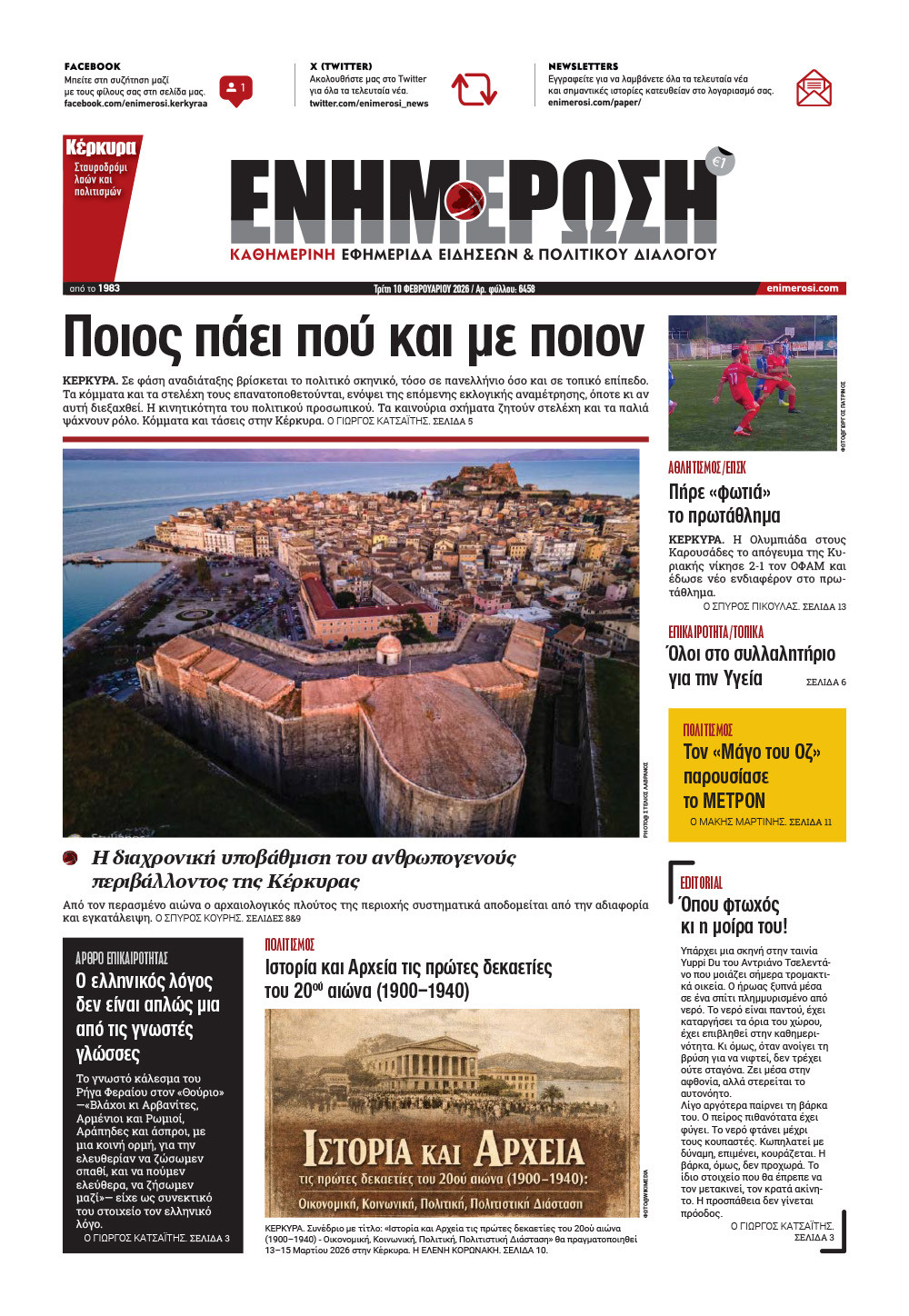Illegal selection of new trees for Garitsa and Anemomylos Parks

Joanna Poyago-Theotoky
08 Mar 2022
/ 17:19
By Joanna Poyago-Theotoky, professor of economics in the UK.
I am following the developments regarding the ‘regeneration’ of the Garitsa and Anemomylos Parks with interest. Of course, we owe Corfu, its residents and visitors and future generations, to deliver a beautiful, clean place that respects the environment, biodiversity and harmonious co-existence.
But much of what is described in the management plan for the ‘regeneration’ project is far from a modern and responsible plan-analysis of this important project.
I will not focus on the issue of the skateboard area since this topic has already been discussed recently. What concerns me is the illegal selection of the majority of the tree species that will be planted to replace those that will be uprooted (a total of 139 trees will be uprooted, 87 in the Garitsa Park and 52 in the Anemomylos Park).
In particular, according to the plan, 87 new trees will be planted in the Garitsa Park and 66 in the Anemomylos Park. The majority of the new trees selected for planting are of the species acacia saligna: 63 in the Garitsa Park (72% of all new trees) and 60 (90%) in the Anemomylos Park. The problem, which is what makes this selection illegal, is that it violates EU regulations on the prevention and management of invasive alien species (regulations 2019/1262, 2016/1141 and 1143/2014).
Acacia saligna is an Australian species, and as of July 2019 (i.e. prior to the writing and approval of the plan for the parks) has been listed on the EU list of invasive alien species. This means that it is not allowed to be imported and planted in the EU, and of course in Greece. Invasive alien species are one of the five main causes of biodiversity loss in Europe and worldwide. They are plants and animals introduced accidentally or deliberately, due to human intervention, in a natural environment in which they would not normally be found. They pose a significant threat to indigenous plants and animals in Europe, causing an estimated loss of €12 billion a year to the European economy.
And I ask myself: How and why is species that is harmful to the ecosystem being selected to replace indigenous species? Whether out of ignorance or expediency, the point is that it is not an appropriate choice, it is illegal. This choice is undermining the credibility of the Municipal Authority to manage such important projects as the regeneration of the Garitsa and Anemomylos Parks and is raising legitimate questions of expertise and compliance with the Community Framework.
But much of what is described in the management plan for the ‘regeneration’ project is far from a modern and responsible plan-analysis of this important project.
I will not focus on the issue of the skateboard area since this topic has already been discussed recently. What concerns me is the illegal selection of the majority of the tree species that will be planted to replace those that will be uprooted (a total of 139 trees will be uprooted, 87 in the Garitsa Park and 52 in the Anemomylos Park).
In particular, according to the plan, 87 new trees will be planted in the Garitsa Park and 66 in the Anemomylos Park. The majority of the new trees selected for planting are of the species acacia saligna: 63 in the Garitsa Park (72% of all new trees) and 60 (90%) in the Anemomylos Park. The problem, which is what makes this selection illegal, is that it violates EU regulations on the prevention and management of invasive alien species (regulations 2019/1262, 2016/1141 and 1143/2014).
Acacia saligna is an Australian species, and as of July 2019 (i.e. prior to the writing and approval of the plan for the parks) has been listed on the EU list of invasive alien species. This means that it is not allowed to be imported and planted in the EU, and of course in Greece. Invasive alien species are one of the five main causes of biodiversity loss in Europe and worldwide. They are plants and animals introduced accidentally or deliberately, due to human intervention, in a natural environment in which they would not normally be found. They pose a significant threat to indigenous plants and animals in Europe, causing an estimated loss of €12 billion a year to the European economy.
And I ask myself: How and why is species that is harmful to the ecosystem being selected to replace indigenous species? Whether out of ignorance or expediency, the point is that it is not an appropriate choice, it is illegal. This choice is undermining the credibility of the Municipal Authority to manage such important projects as the regeneration of the Garitsa and Anemomylos Parks and is raising legitimate questions of expertise and compliance with the Community Framework.




